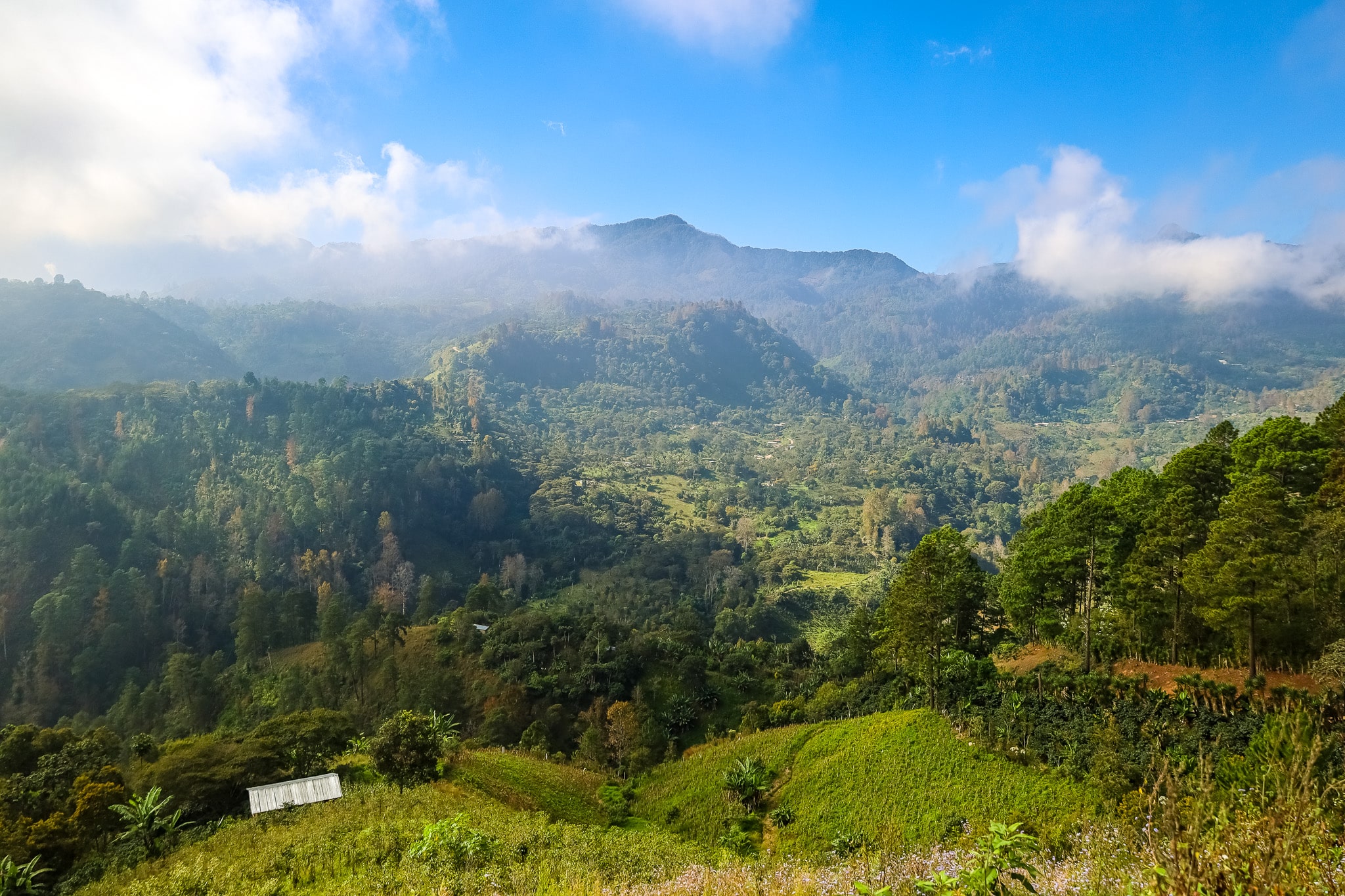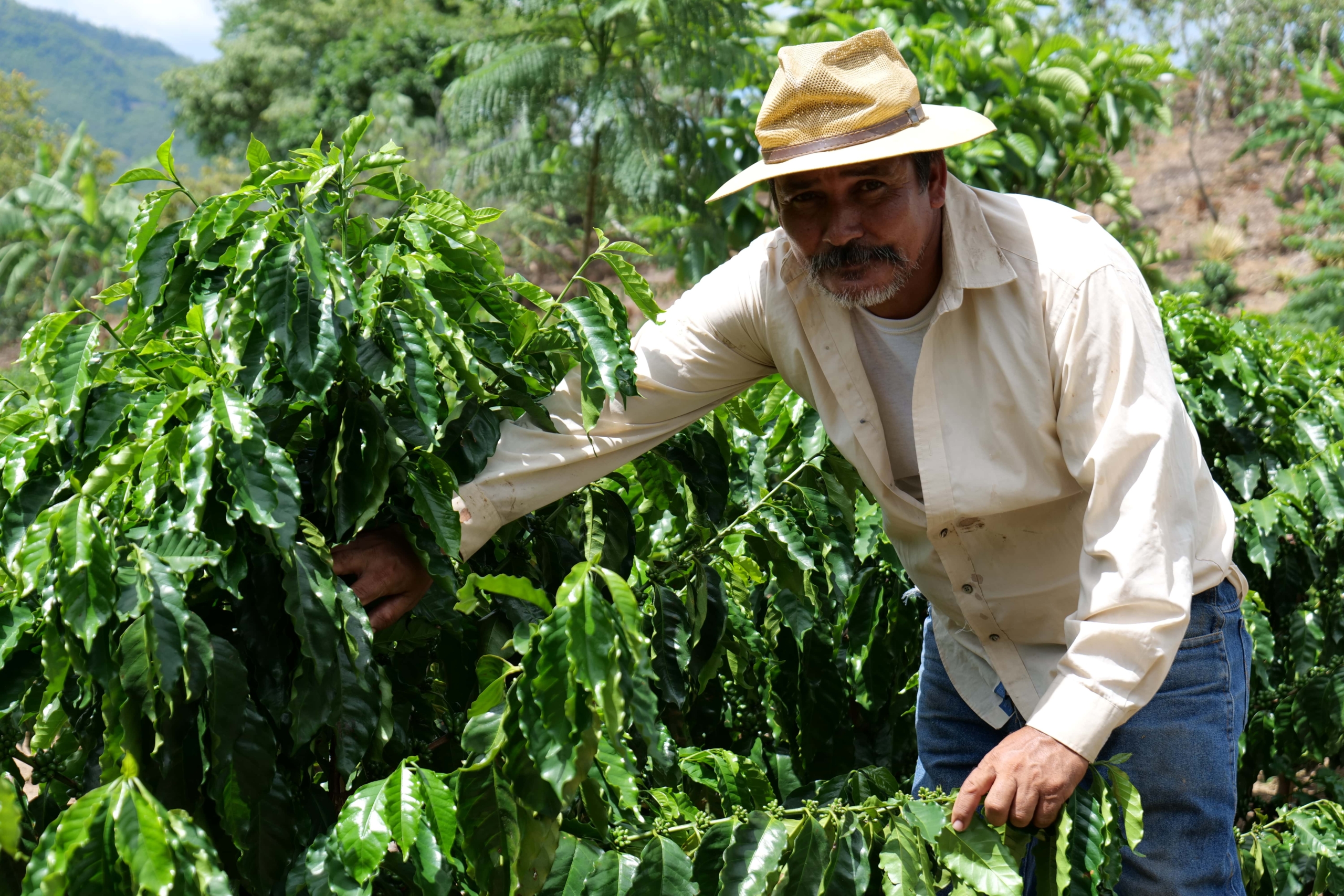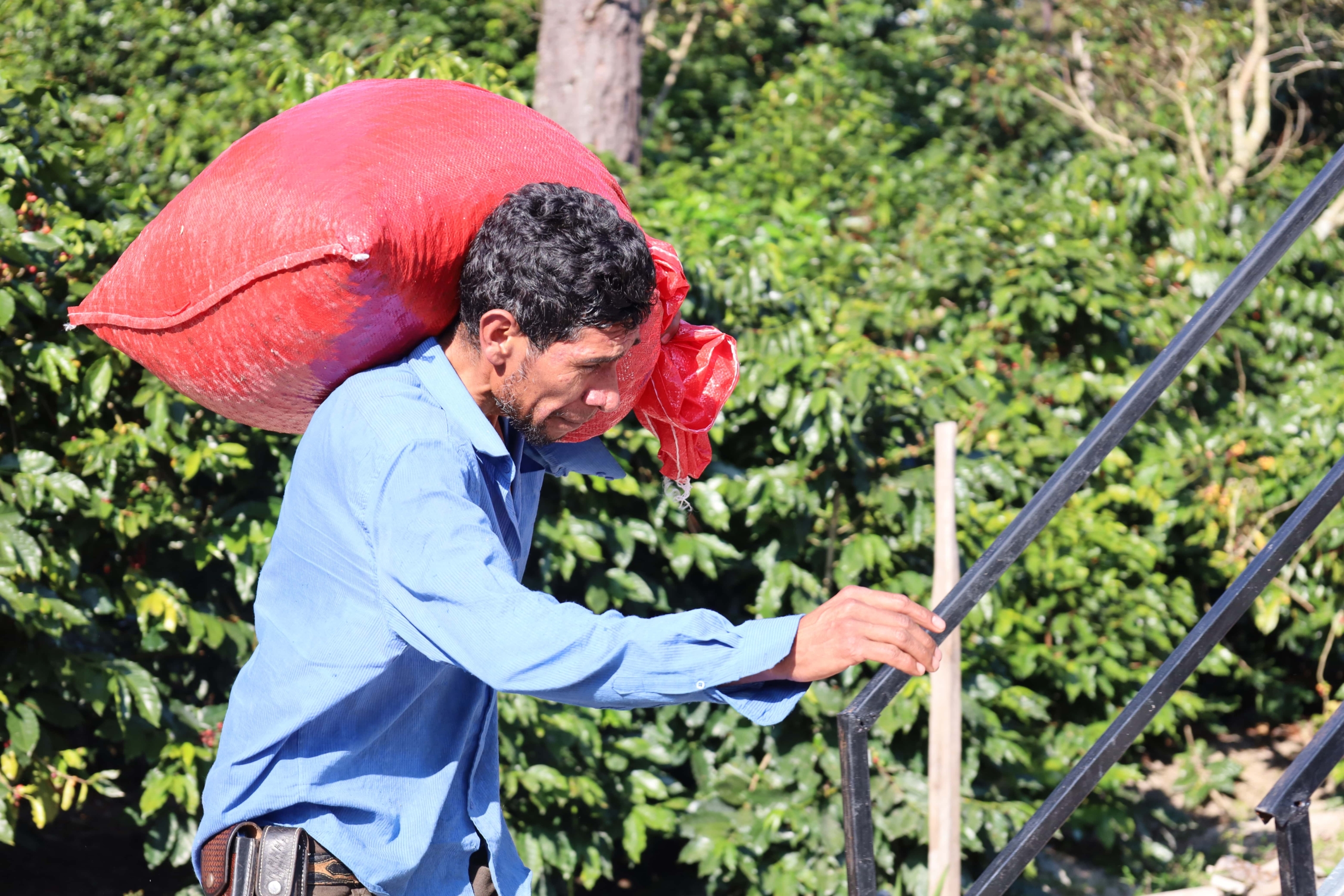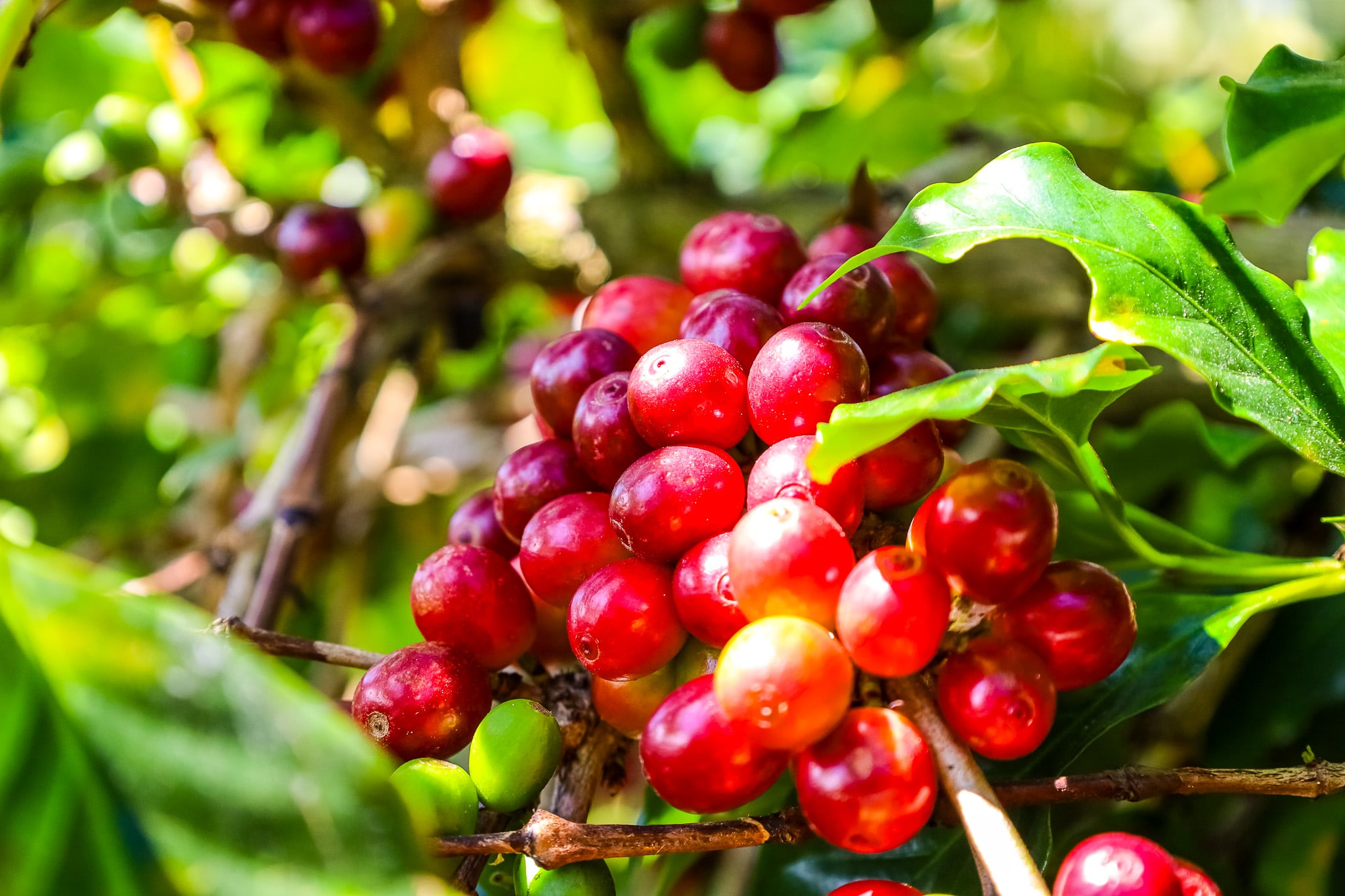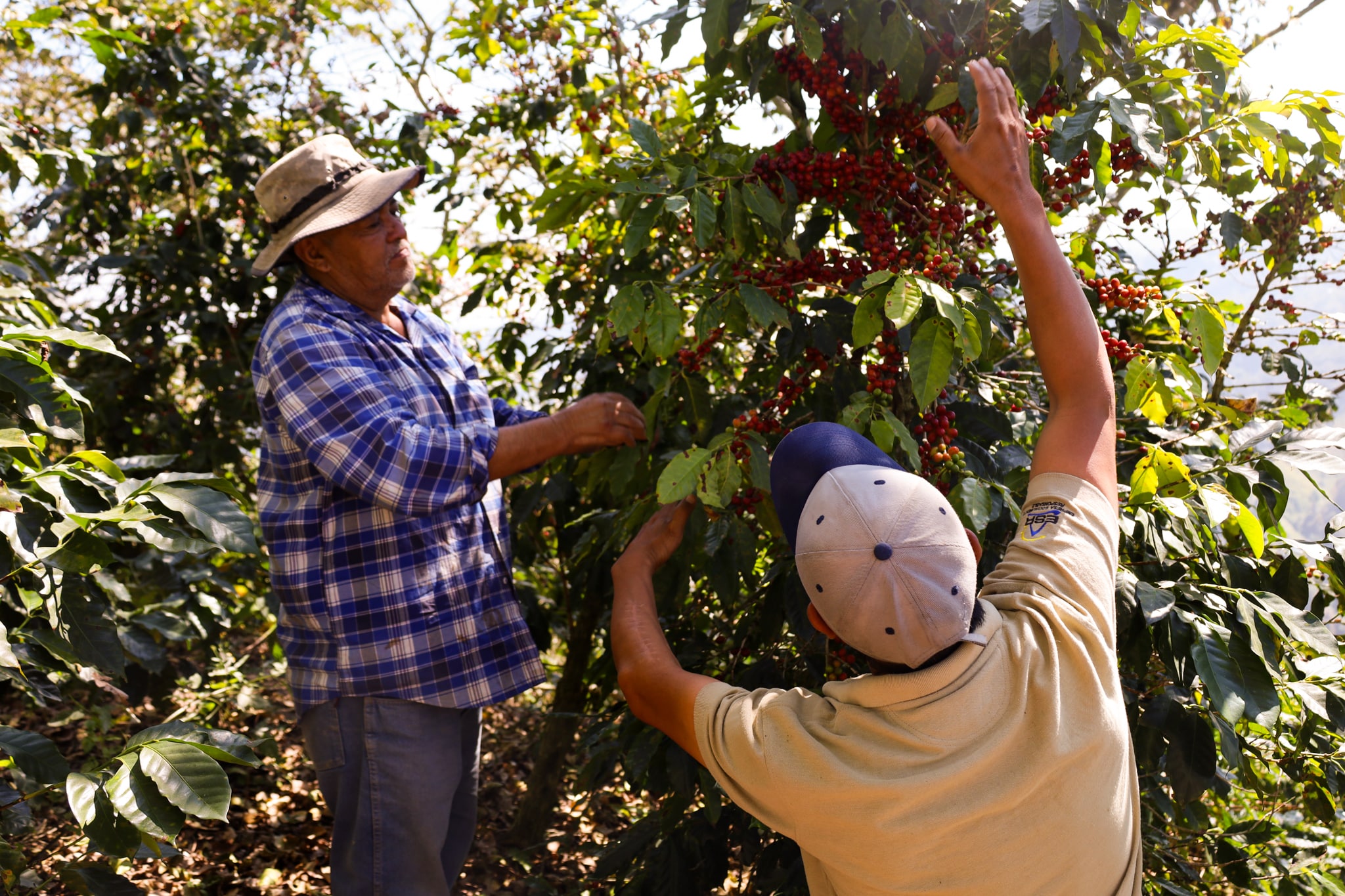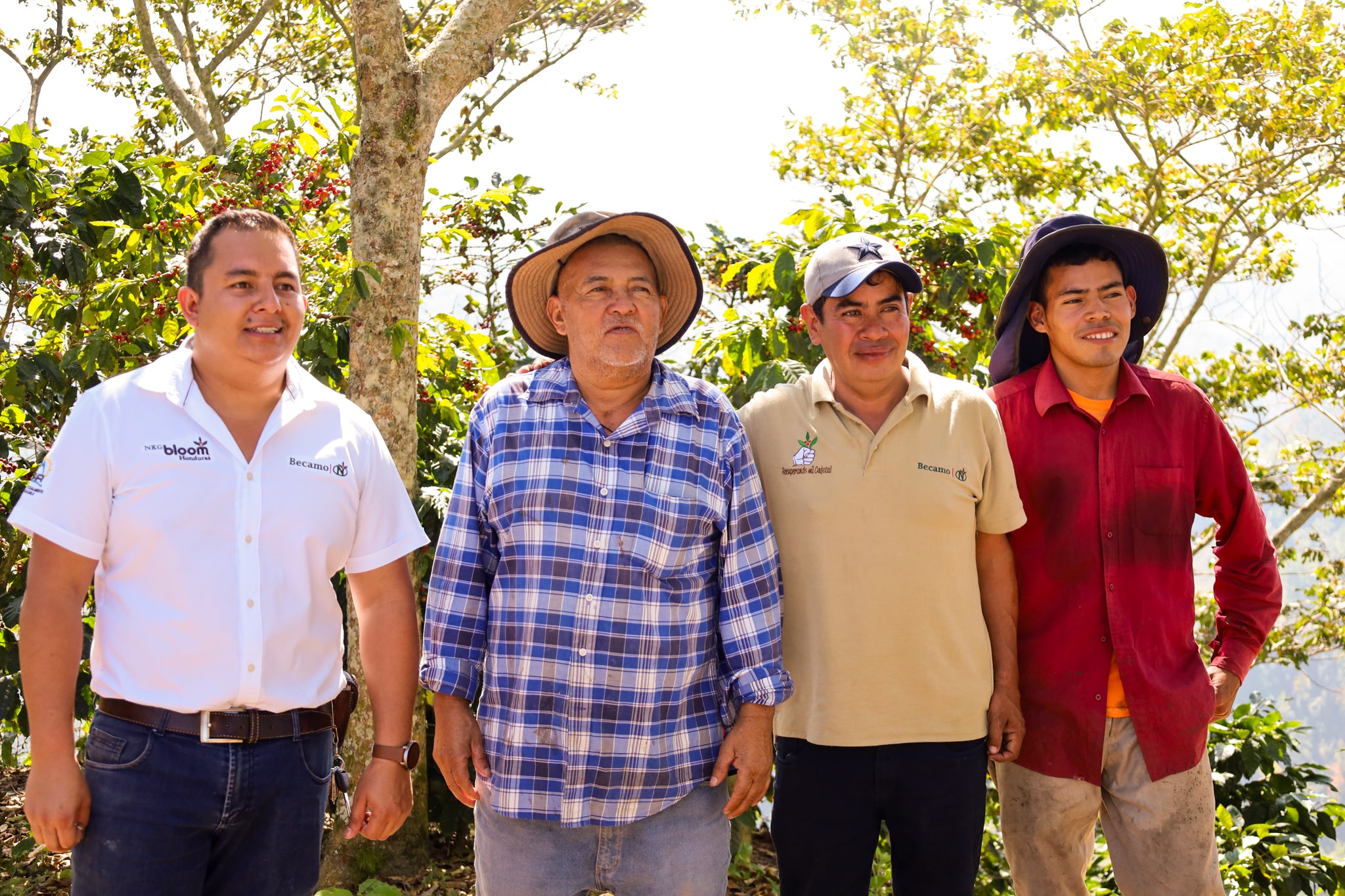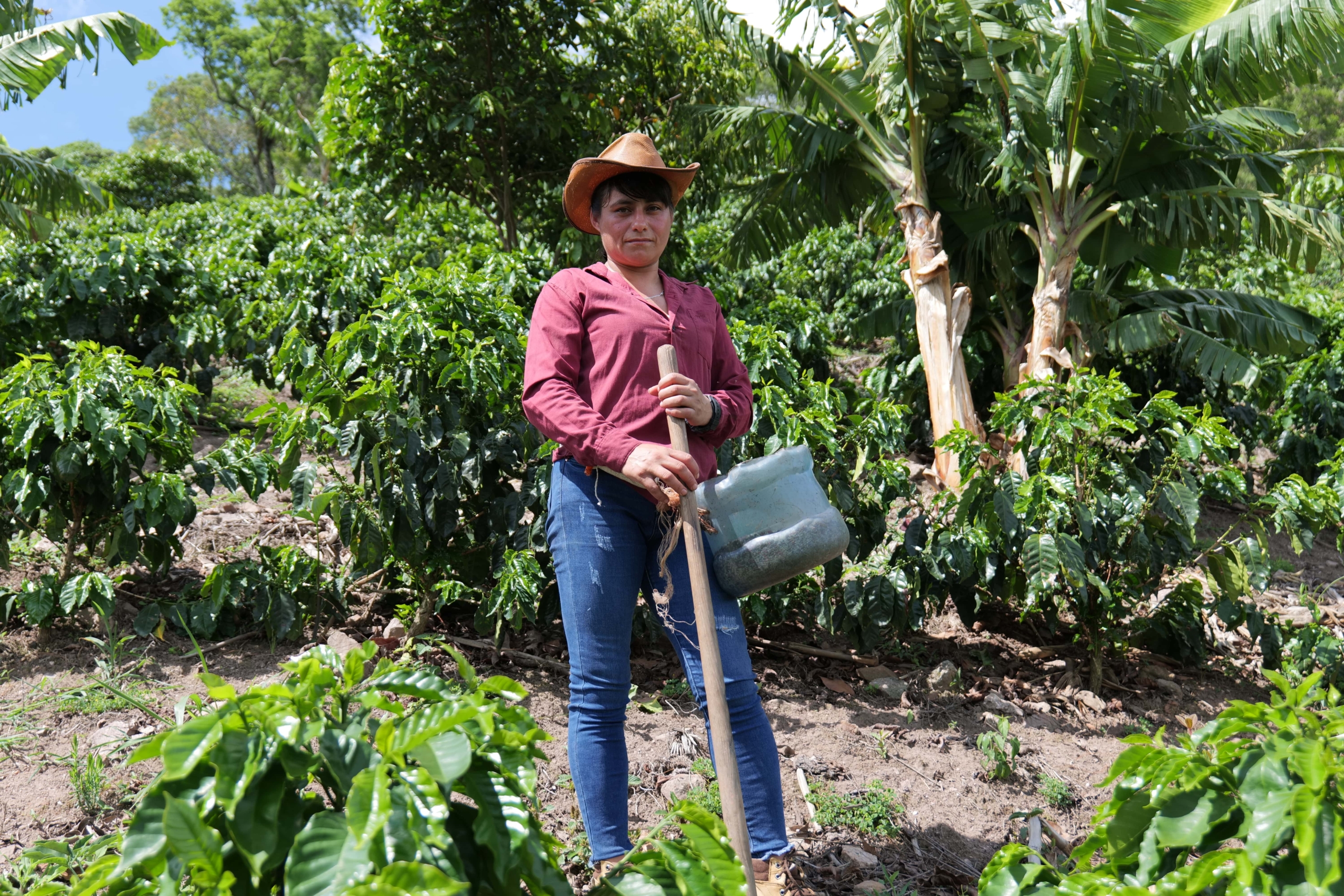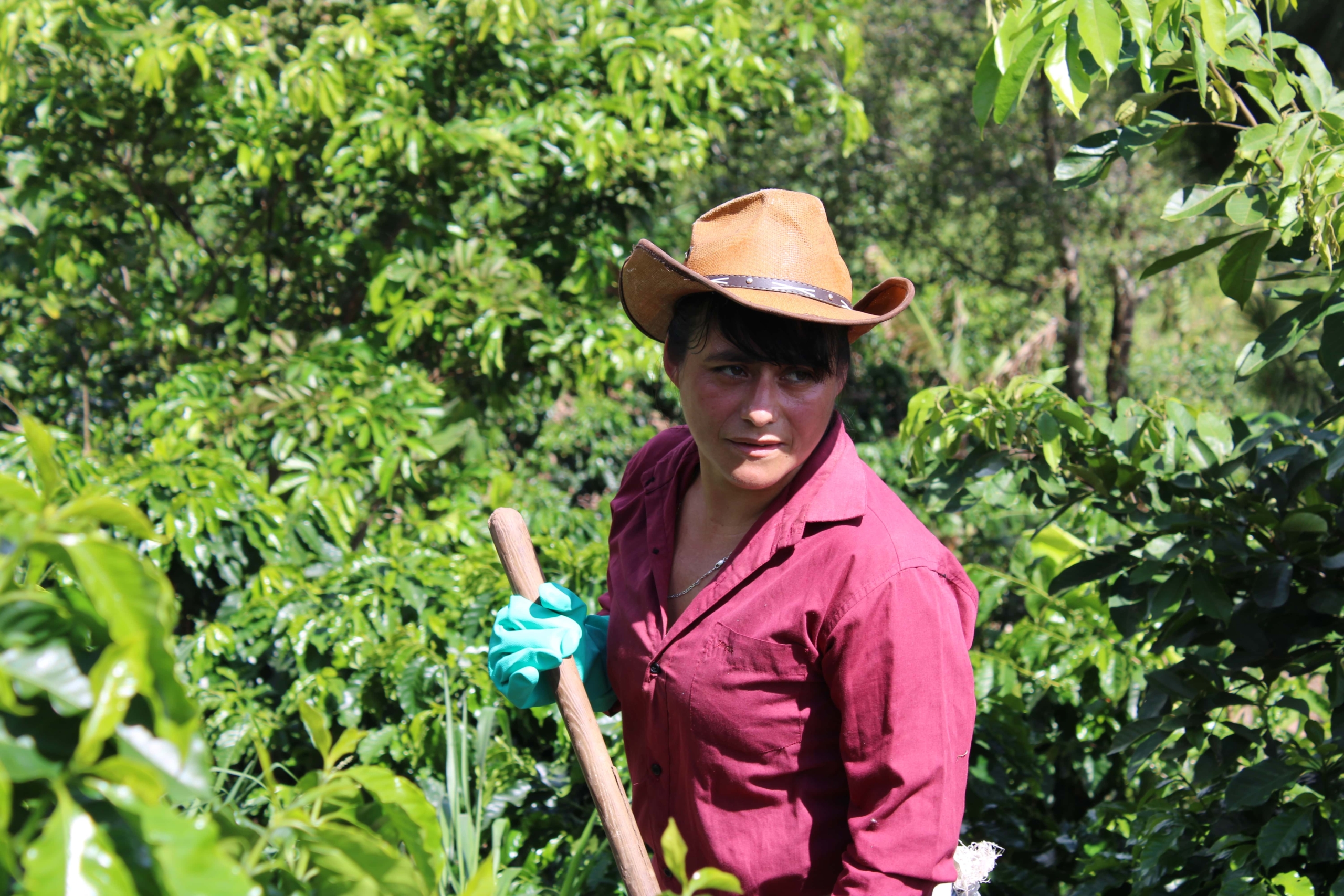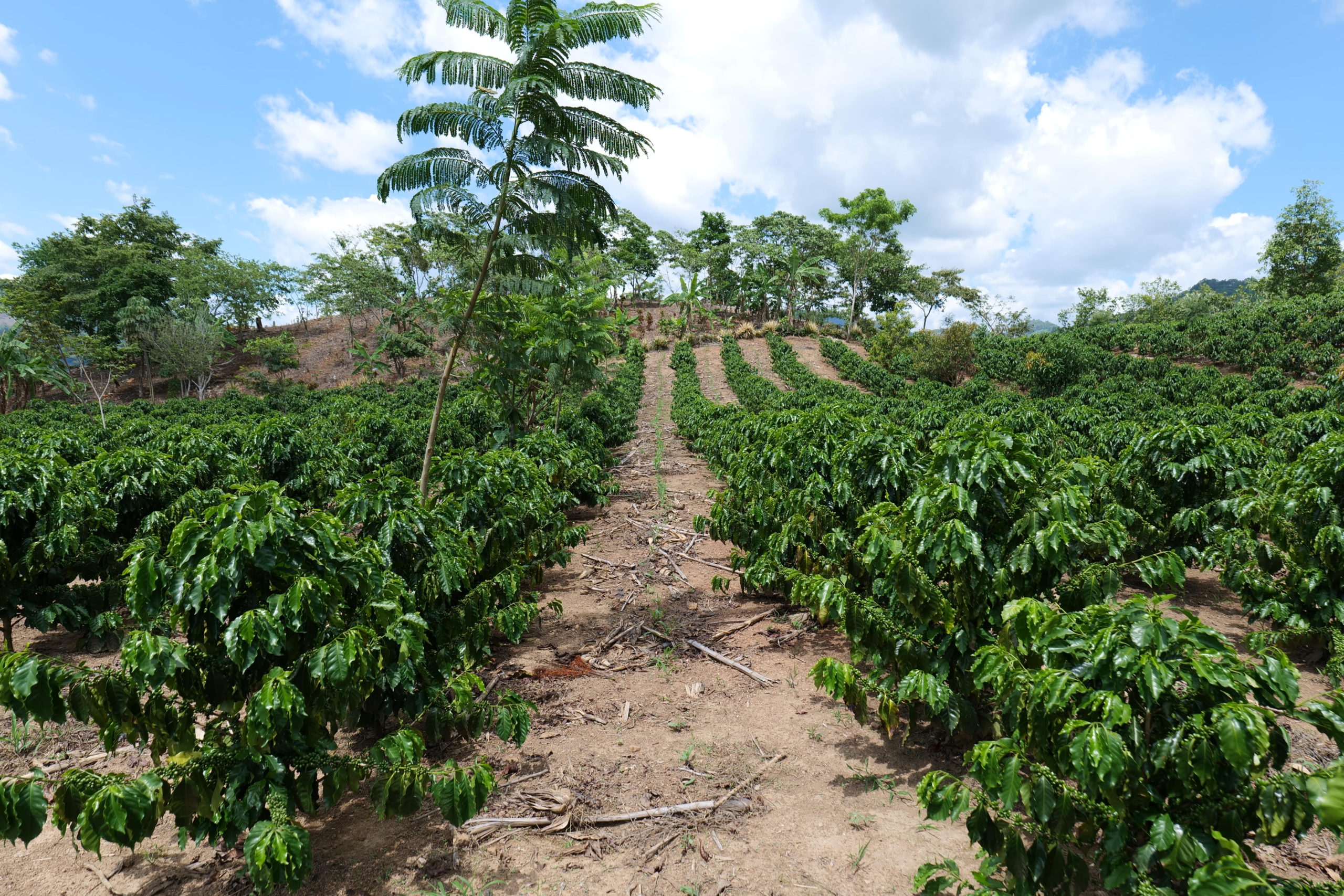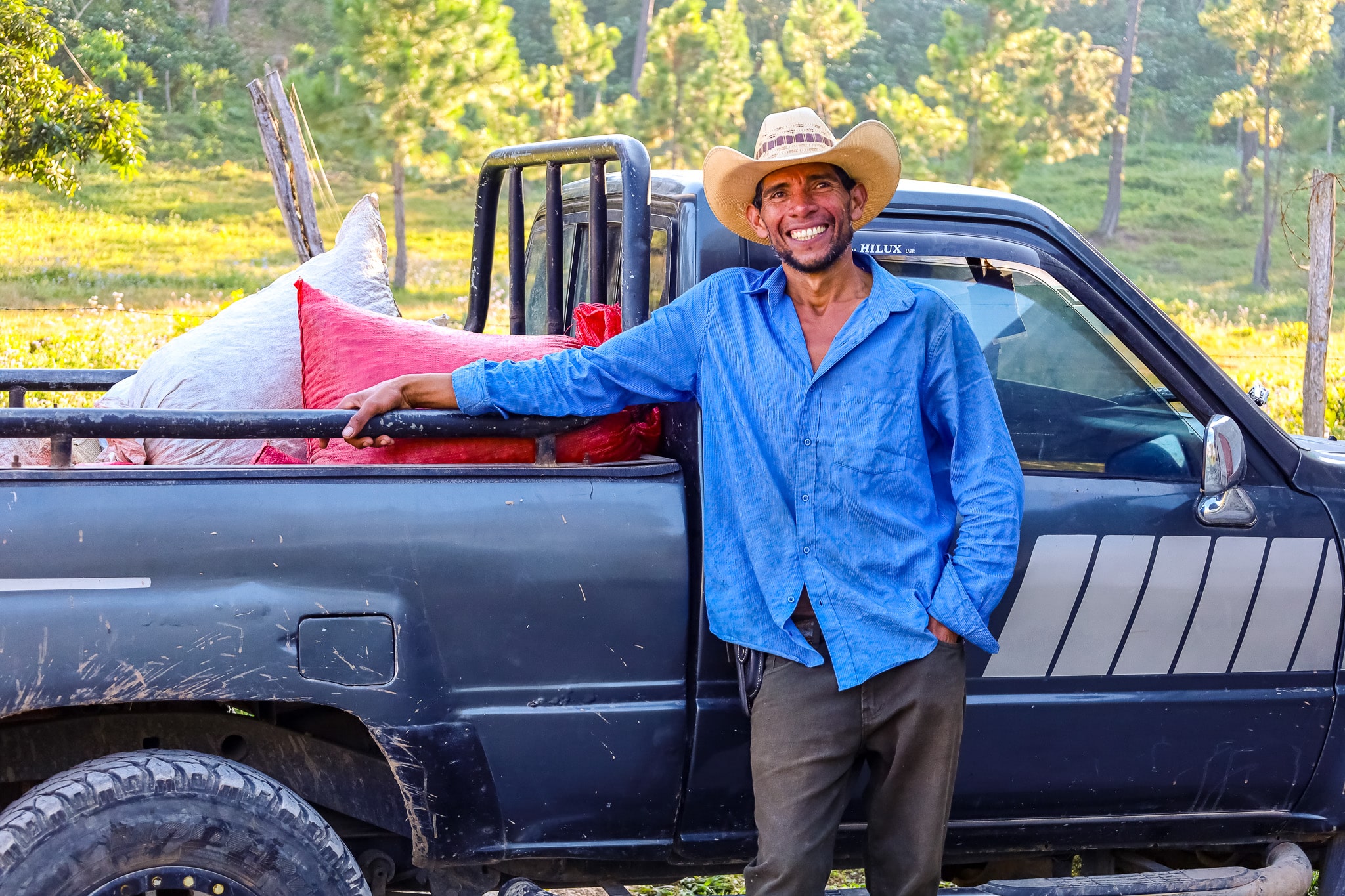Honduras NKG Bloom Siguatepeque is named for the municipality where it is produced. Siguatepeque is located in the central highlands of Honduras and serves as an important cultural and commercial hub for local communities. Markedly it is celebrated for its exceptional coffee.
Honduras NKG Bloom Siguatepeque is grown by 133 producers enrolled in the NKG Bloom initiative. Notably, 20% of these producers are women and 14% are young adults. NKG Bloom is a global initiative aimed at ending the cycle of poverty in the coffee supply chain by empowering producers to run their farms at full potential. The initiative offers producers custom service packages that may include financing, high-quality inputs, seedlings, agronomy and business training, information services, access to markets and new coffee technologies.
NKG Bloom & RCM
NKG Bloom in Honduras has its roots in an effort known as Recuperando Mi Cafetal (Recovering My Coffee Fields). This comprehensive project was launched in 2015 by NKG export company Becamo in the wake of the rust crisis. Its aim was to revitalize coffee plantations with certified, eco-friendly coffee varieties. Through the RMC infrastructure, producers benefit from access to Ecopil coffee plants, which are grown in cylinders made of substrate, organic matter, and a biodegradable paper mesh. This innovative method allows the coffee plants to develop strong root systems before being transplanted. As a result the plants are healthier and produce higher yields.
The Unit for Sustainable Services to Producers
The Unit for Sustainable Services to Producers (USSP) is the field team providing support on the ground. They contribute to a range of projects that enhance the quality of life for producers in the region. In Siguatepeque the USSP has contributed to the construction of a bridge that improves access for 10 local communities. Additionally they have distributed over 100 water filters, ensuring clean drinking water for households. They have also rebuilt a Kindergarten in the community of El Zapote and organized activities to celebrate Children’s Day. Furthermore, the USSP donated forest and fruit trees to producers, contributing to reforestation and environmental sustainability, diversifying their agricultural income and enhancing food security.
Further, the USSP provided Bio-input Laboratories to various communities supporting organic farming practices. They have also constructed 20 stations for handling pulp coffee and built 15 latrines for workers promoting better hygiene and sanitation. All these investments in infrastructure and community enhance quality of life in the short and long term. Altogether they are building a strong foundation for holistically sustainable coffee production in the region.
